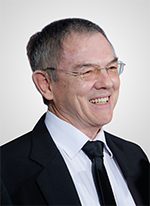

In 2023, the SAIMC NPC and MESA Africa NPC joined forces, as their areas of activity had grown closer together. During this same time, ECSA recognised Computer Engineering as a separate discipline and asked the SAIMC to work on the initial Code of Practice for Computer Engineering. Gerhard Greeff, Gawie Reyneke and Antoine Snyman (MESA Africa), and Professor Henri Marias (NWU Computer Engineering) participated in draughting the Computer Engineering Code of Practice, which was later accepted by the broader engineering community.
This led the SAIMC’s Strategy Session to initiate a change in the meaning of the ‘C’ in SAIMC, previously representing ‘Control’, to represent ‘Computer Engineering’. After the SAIMC applied for extension of its status as a Voluntary Association of ECSA, a certificate was received confirming that SAIMC’s application for renewal as a Voluntary Association for the next three years was approved. The Certificate now reads ‘SAIMC − Society of Automation, Instrumentation, Mechatronics and (Industrial) Computer Engineering’.
This exciting news required some changes to the structure of the SAIMC to accommodate this new discipline into our organisation, for optimal benefit to our current and prospective members. Gerhard Greeff, Chair of MESA Africa, and Dr Arthie Moore-Robberts, newly appointed director of the now dormant MESA Africa NPC, developed a draft proposal. This was then discussed with the MESA Africa exco, with the result that the newly established Computer Engineering Advisory Council will now be managed by the MESA Africa exco team, together with Professor Henri Marais.
The only Advisory Council that the SAIMC still needs to establish is that of the User Advisory Council. This will close the loop between suppliers, users and educators. Here, the SAIMC has the advantage of the annual MESA Conference, which is mainly aimed at MES/MOM users. This could be expanded to become the SAIMC User Conference, sponsored by the Computer Engineering MESA Africa group. It would be an excellent opportunity to invite more automation users to share their experiences, and provide a platform for our national members to showcase their latest developments.
Moving on to more automation information, the United Nations Department of Economic and Social Affairs published 17 goals under Sustainable Development. Automation could play a major role in addressing these goals, but a radical change in attitude among South Africa’s rulers is required. When we attend webinars and other seminars, South African political leaders communicate widely on what should be done and all the papers they are working on, but they are silent on actual achievements. In the next couple of letters, I will address these goals and your feedback will be appreciated, especially as far as what we could do to address them, both as individuals and collectively.
Goal 1: Zero poverty
Social Development Goal 1 (SDG 1) aims to eradicate every form of extreme poverty by 2030, including the lack of food, clean drinking water, and sanitation. It focuses not just on people living in poverty, but also on the services people rely on and the social policy that either promotes or prevents poverty. By 2030, all men and women are to have equal right to economic resources, and also access to basic services, ownership and control over land and other forms of property, inheritance, natural resources, appropriate new technology, and financial services including microfinance. To achieve this goal, at least two elements are required to form a solid foundation, education and access to information.
Goal 2: Education
It is crucial that education should prepare learners to enter the job market, either as employees or entrepreneurs. Teachers are a unique breed. They educate pupils who often have no respect for authority because they are not taught this at home. Parents expect teachers to educate their children, and complain if any type of discipline is enforced on their ‘little angels’. Then you also have teachers who try their best under difficult circumstances, but have no experience of the environments where their pupils will be working. This is where tertiary institutions receive applicants who have never seen a computer, let alone being comfortable with using a keyboard and mouse. As soon as crime in South Africa is brought under control, computers should be made available to schools, and the school processes automated to enable teachers to focus more on their pupils.
The SAIMC supports the FIRST Tech Challenge. This is one of the programmes where we as industry can make a huge contribution to educate both our school pupils and their educators.
Goal 3: Access to information
I was deeply disturbed to learn that our rural areas, which are home to the most impoverished and vulnerable populations, do not have access to the internet due to the avarice of our government. What could possibly lead them to believe that Elon Musk would allocate a portion of his business to a country where numerous leaders are suspected of engaging in bribery and corruption, with little or no accountability? It is crucial that we implement automation to provide universal access to basic social services, progressively developing social protection systems to support those who cannot support themselves.
Yours in Automation
Johan Maartens
| Tel: | +27 11 312 2445 |
| Email: | [email protected] |
| www: | www.saimc.co.za |
| Articles: | More information and articles about SAIMC |

© Technews Publishing (Pty) Ltd | All Rights Reserved